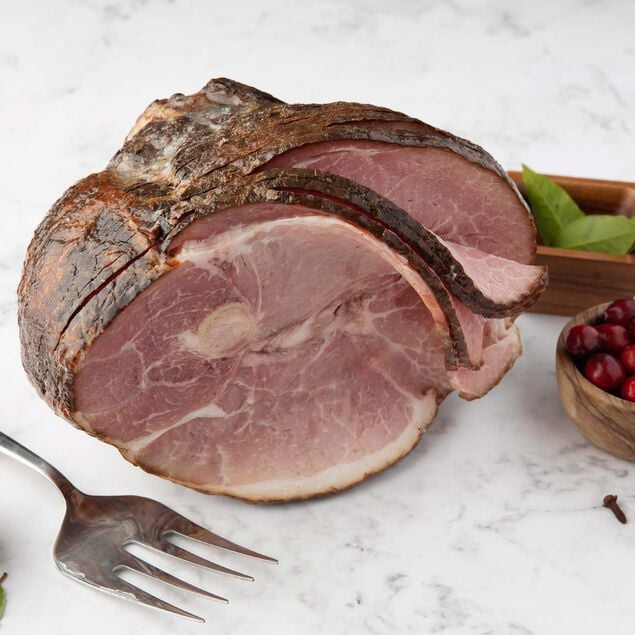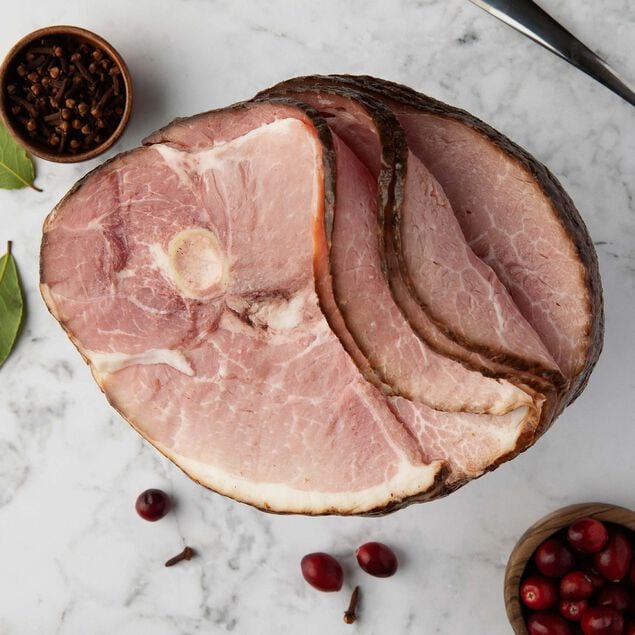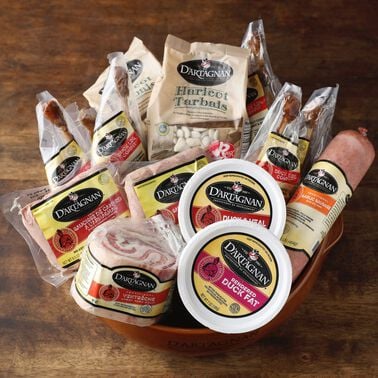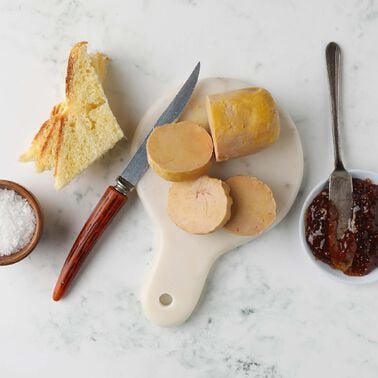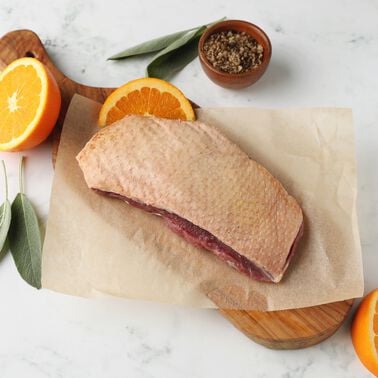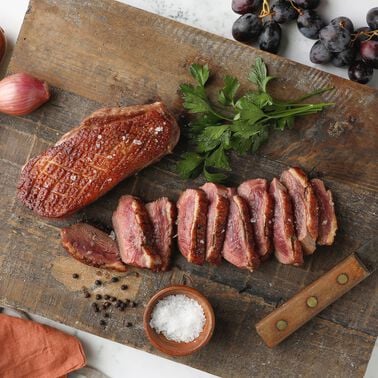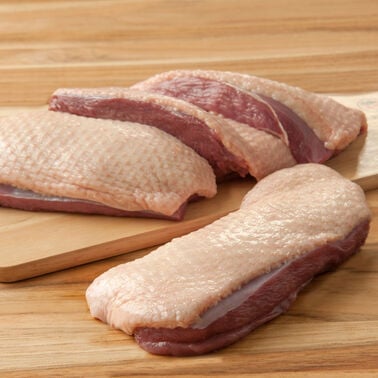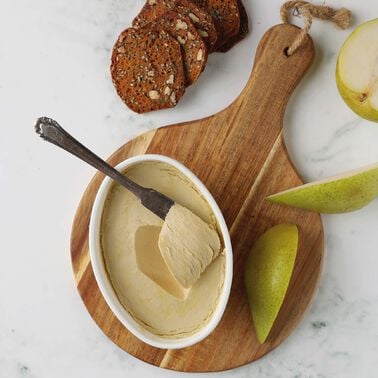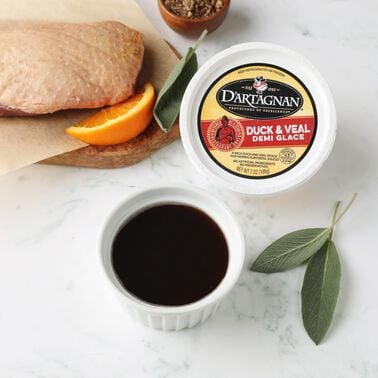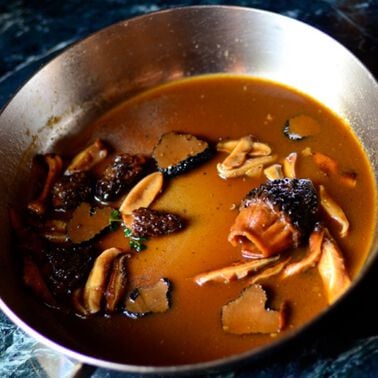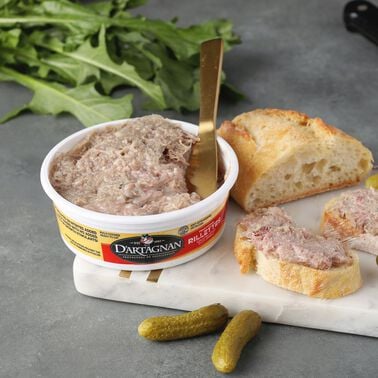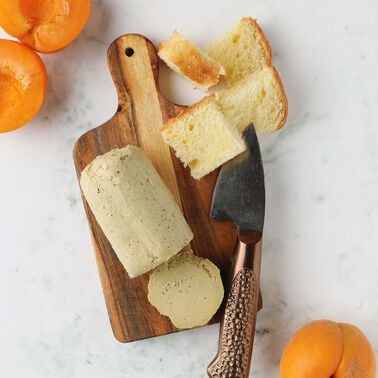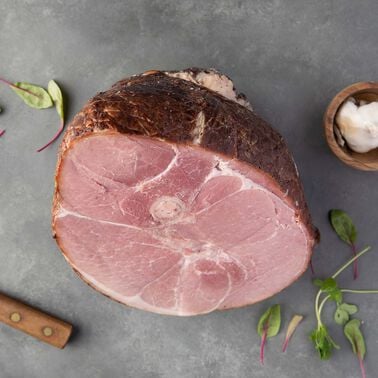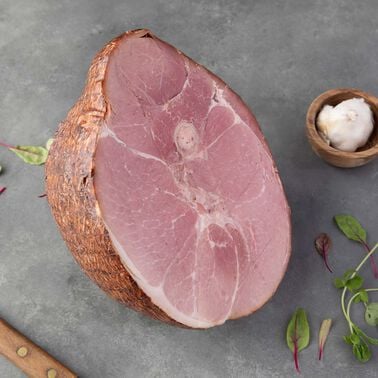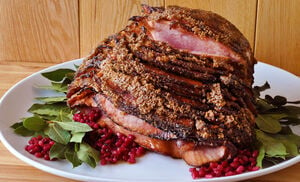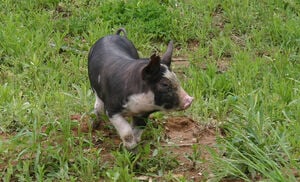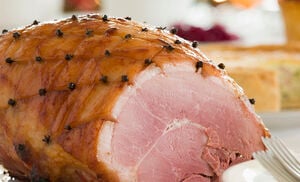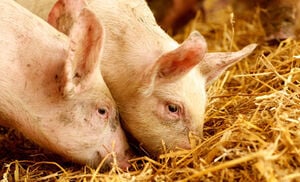Berkshire Pork Bone-In Spiral Smoked Ham, Half
Due to its high seasonality, this item is not eligible for discounts
-
This item is currently not available
*Servings based on 8oz per person.
- Exceptionally tender, well-marbled style of pork
- Berkshire-breed pigs raised on pasture
- No antibiotics or hormones from birth
- Handcrafted ham, smoked over real applewood
- Uncured - no nitrates, nitrites or phosphates
- No artificial ingredients, colorings or preservatives
- Fully-cooked and ready-to-eat
- Gluten-free
- Product of USA
- For best taste on fresh products, use or freeze within 3-5 days of receipt; for frozen products, use within 1-2 days after thawing
THIS ITEM IS EXCLUDED FROM PROMOTIONS
Heating Instructions
- Bring ham up to room temperature.
- Preheat oven to 300°F.
- Remove all external packaging.
- Place the ham fat-side-up in a heavy-bottomed roasting pan.
- Place a sheet of parchment paper over the ham and cover tightly with aluminum foil. Heat in the oven until the internal temperature reaches about 140°F. Allow approximately 10-15 minutes per pound for heating time. Heating time will vary depending on the oven.
- Remove from oven and allow to rest for five minutes, tented with foil.
Ingredients: Berkshire pork ham, water, salt, turbinado sugar, cultured celery powder
Our mission is to find farmers that share our vision of a more humane and sustainable way of rearing livestock. The cooperative of small family farmers that raises our Berkshire hogs is dedicated to traditional methods, allowing hogs to feed on pasture, with access to water and supplemental grain consisting of corn, soybeans and rolled oats. No pesticides, animal by-products or fishmeal are allowed. The majority of the farms are sustainable "circle farms" that raise and grind their own feed for the pigs.
Families of pigs are left together, to forage and frolic outdoors on pasture. The indoor spaces offer at least 15 square feet of space per animal, and sows are never put in gestation crates.
The cooperative is strict about banning the use of antibiotics and hormones on each farm and limiting the number of hogs the farms raise. They seek to add another farmer to the cooperative before they add more pigs to any one farm, making the process more humane for all concerned.



